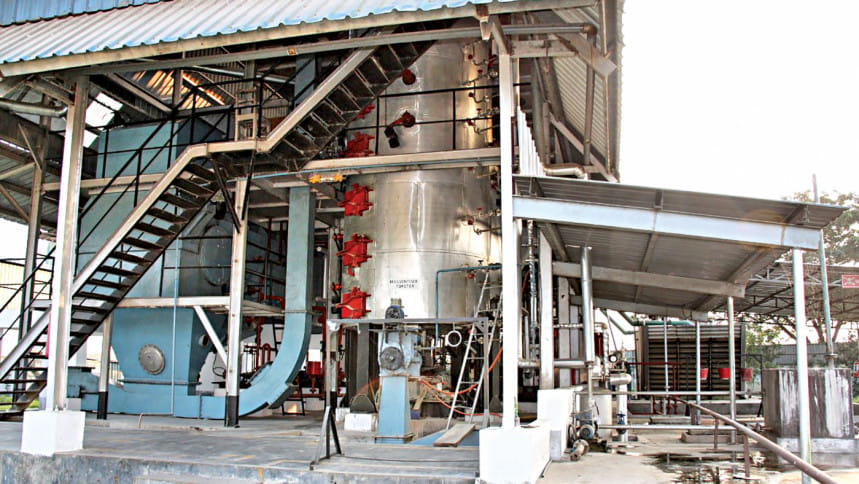Rice bran oil makers cut production for export ban

Most rice bran oil industries in Bangladesh have either cut or stopped production since the government slapped an export ban a month ago as the edible oil variety does not have a large consumer base locally.
Owing to the price hike of edible oil in the international market for supply disruptions, pent-up demand and the Ukraine war, the government prohibited the foreign sales of rice bran oil on May 24 to cool the domestic market.
Operators claim the sudden export embargo without any discussion with the industry people came as a blow and would hamper foreign currency earnings and the growth of the budding industry.
In fact, the ban is costing exporters nearly Tk 150 crore per month, they said.
Rice bran is the light red covering on the upper part of the rice under the husk of paddy and is a by-product of rice processing.
There are 17 rice bran oil industries in Bangladesh and most started their journey 10 years ago.

Together, they produce around 2 lakh tonnes to 2.4 lakh tonnes of crude rice bran oil annually. They exported $200-300 million worth of oil, mostly to India, per year before the ban was slapped.
Because of the export restriction, most of the factories have either cut their production or stopped producing oil.
Chitta Majumder, managing director of Majumder Group of Industries, which exported rice bran oil to India, says the company had tried a lot to develop a market for the oil in Bangladesh.
"We could not develop the market. This has forced us to start exporting."
Majumder says the refining sections of all mills have remained idle since the item is shipped in crude form.
"As a result, the refining and bottling sections of mills are yet to become functional. It may take more than a month to make the refining and bottling portions ready to market the oil among the consumers in Bangladesh."
"The whole sector will be destroyed unless the export is allowed," he added.
Tamim Agro Industries Ltd in Bogura used to produce more than 60 tonnes of crude bran oil a day.
"I have more than 150 staff members and workers. I have to make instalments regularly against bank loans. Due to the sudden bar on exports, we are on the verge of collapse," said Shahjahan Ali, managing director of the company.
Tamim Agro produces crude bran oil that is not edible readily, so it doesn't have a local market to sell the item.
Its refinery machines have been inactive for years. As a result, stock of thousands of tonnes of crude oil has piled up because of the export ban, Ali said.
Since making its foray into the segment in 2015, Tamim Agro has been trying to create a local market but it has failed since people mostly consume soybean and palm oil.
"Where will we sell the oil?" Ali said, adding that the production cost of rice bran oil is high.
Abdul Aziz, president of the Bangladesh Rice Bran Oil Mills Association (BRBOMA) and managing director of Western Agro Products Ltd in Bogura, says the country needs about 30 lakh tonnes of edible oil each year whereas rice bran oil industries produce 2 lakh tonnes to 2.4 lakh tonnes of crude bran oil.
"So, our production capacity does not affect the domestic edible oil market. I don't understand why the government has stopped the exports."
According to Aziz, rice bran oil industries earn $250-300 million yearly by exporting the item.
Besides, they help the country save more than $300-400 million by producing de-oiled rice bran as a byproduct of extraction of oil from bran. The byproduct is used in fish and animal feed.
Aziz added the refinery facilities have been inactive for years.
"If we want to resume refining, we need skilled workers and need time. We need government help. If the export ban persists, the industries will lose millions of dollars."
Prokash Dutta, managing director of Agrotech International Ltd in Mymensingh, said the government has decided to introduce rice bran oil to the local market as a commodity oil like soybean and palm.
"But it is a special oil, costs more to produce and sells at higher prices in other countries."
The BRBOMA urged the government to reconsider the export ban and defer it by a year so that industries can create the local market.

 For all latest news, follow The Daily Star's Google News channel.
For all latest news, follow The Daily Star's Google News channel. 



Comments